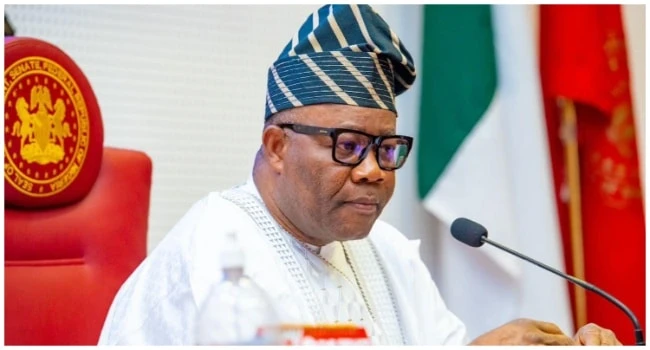The Nigerian Senate’s proposed Investment Bill mandates a 10-year jail term and fines for Ponzi scheme operators, aiming to protect investors and enhance market transparency.

The Nigerian Senate recently proposed a new Investment and Securities Bill (ISB) 2024, introducing stricter penalties for operators of Ponzi schemes and other illegal investment schemes. This bill, which has passed its second reading, seeks to repeal and replace the Investment and Securities Act of 2007, creating a more comprehensive legal framework to combat financial fraud and safeguard investors.
As part of its reforms, the bill proposes prison terms of up to 10 years, fines of at least ₦20 million, or both, for individuals found guilty of promoting or operating Ponzi schemes.
The ISB 2024 is part of broader efforts by Nigeria’s government and financial regulators to modernize and secure the investment environment. During a recent public hearing at the National Assembly, the Director-General of the Securities and Exchange Commission (SEC), Emomotimi Agama, emphasized the bill's commitment to prohibit Ponzi and pyramid schemes, aiming to protect unsuspecting Nigerians from financial exploitation.
“The proposed legislation proposes an express prohibition of Ponzi/Pyramid Schemes and other illegal investment schemes to ensure that illegal fund managers were not allowed to fleece unsuspecting Nigerians of their funds.”
Strengthening SEC's Authority and Investor Confidence
Under the proposed bill, the SEC’s role and authority are further expanded, allowing the organization to effectively oversee and regulate complex financial instruments, such as derivatives markets, collateral management, and warehouses issuing receipts.
This increased regulatory power will enhance the SEC’s “Signature A” status as the leading body in Nigeria’s capital market. It will allow the commission to crack down on unauthorized and illegal investment activities that have become prevalent in recent years, partly due to the rapid growth of financial technology (fintech).
The bill also introduces new provisions to address issues within the fintech sector. With this modernization, the SEC will now have the capacity to supervise mergers and acquisitions involving public companies, broadening its regulatory scope to cover financial market infrastructures and all trading venues engaged in securities trading.
Senate’s Vision for Economic Transformation
Senate President Godswill Akpabio, represented by Senator Binos Yaroe, described it as “a beacon of hope” for Nigeria’s economy. Akpabio noted, “Our mandate is clear: to legislate for the betterment of society, to create an environment conducive to growth and innovation, and to safeguard the interests of every citizen.”
He called on stakeholders to engage in constructive dialogue, underscoring the importance of transparency and inclusiveness as they finalize the bill's provisions.
In addition to addressing Ponzi schemes, the ISB 2024 has the potential to transform Nigeria's capital market by attracting foreign investors and enhancing investor confidence. The bill’s provisions seek to improve transparency in financial markets and reduce systemic risks that have previously marred the country’s investment landscape.
Background on Ponzi Schemes in Nigeria
Ponzi schemes, known for promising high returns with little to no risk, have been prevalent in Nigeria, causing substantial financial losses. Such schemes typically lure investors with high returns, which are paid using funds from newer investors, creating a cycle that inevitably collapses.
One of the most notorious schemes, Mavrodi Mundial Movement (MMM), defrauded approximately three million Nigerians of ₦18 billion in 2016 alone. More recently, reports have highlighted that Nigerians have lost over ₦300 billion to Ponzi schemes within a span of five years, according to Norrenberger Financial Investments.
Read More:
Final Thoughts
The ISB 2024 is awaiting final approval before becoming law. Once enacted, this legislation is expected to curb fraudulent schemes, bolster economic resilience, and encourage lawful investment practices across the nation.
This modernized framework is a significant step towards reducing financial crime in Nigeria and revitalizing the public’s confidence in the investment sector, a key factor for long-term economic stability.

